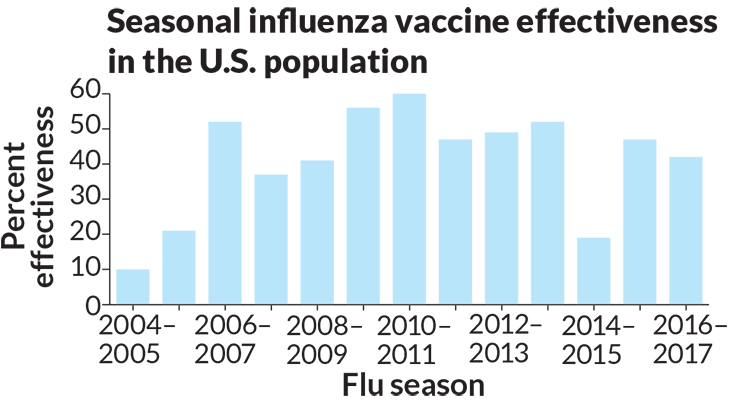Flu Shot? Or Not?
 It’s that time of year again and we’re getting lots of questions about whether or not to get a flu vaccine. There is no across the board “yes” or “no” answer to this controversial question because the answer depends on who you are if you are high risk or not, and what your personal beliefs and preferences hold. At 4 Better Health, Inc we consider ourselves integrative providers which means we use the best research and treatment modalities from both the conventional medical world and the functional medicine approach.
It’s that time of year again and we’re getting lots of questions about whether or not to get a flu vaccine. There is no across the board “yes” or “no” answer to this controversial question because the answer depends on who you are if you are high risk or not, and what your personal beliefs and preferences hold. At 4 Better Health, Inc we consider ourselves integrative providers which means we use the best research and treatment modalities from both the conventional medical world and the functional medicine approach.
Conventional medicine and news media heavily promote flu shots for healthy people and they are now often mandatory in some settings. This leads the masses to believe they’re the best and most effective approach to preventing the flu- so of course, most would want to have the flu vaccine. When we researched the science in support of these strong recommendations it isn’t as impressive as we’d hoped. In January 2018, U.S. government officials finally publicly admitted that flu vaccines were on average 20 to 60 percent effective over the last thirteen years at preventing lab-confirmed influenza requiring medical care.
February 2018 the prestigious Cochrane Collaboration (an independent group who does meta-analyses of studies on various topics to try to reach consensus) updated their analysis of the effectiveness of the influenza vaccination in healthy adults, elderly (>65) and children.
Here are some of their conclusion regarding the flu vaccine:
Healthy adults reduced experiencing the flu from 2% to just under 1% and possibly experienced less influenza-like-illness when vaccinated. The impact of the vaccination in healthy adults (including pregnant women) was modest. There was low certainty that the flu shot reduced hospitalizations or time off from work (translation- it doesn’t appear to do either of these things). There were no serious adverse events from the vaccine but a small increase in fever.

In older adults (>65) the risk of flu decreased from 6% to 2.4% with the flu shot with possible lowering of the risk of influenza-like-illness. It wasn’t clear if the vaccine prevented complications or hospitalization. The Cochrane reviewers thought this evidence was of low certainty due to how the flu was diagnosed in the studies. The authors concluded, “The available evidence relating to complications is of poor quality, insufficient, or old and provides no clear guidance for public health regarding the safety, efficacy, or effectiveness of influenza vaccines for people aged 65 years or older.”
Studies of live attenuated vaccines in kids ages 3-16 years showed a reduced risk from 18% to 4%. Inactivated vaccines reduced the risk in kids ages 2-16 from 30 to 11%. There were very few studies on children under the age of two. One type of vaccine was associated with the sudden loss of muscle tone but there was no clear evidence of serious harm.
The evidence for healthy people is not as compelling as we’ve been led to believe, particularly for healthy adults. There appears to be a modest benefit in children ages 2-16.
A decrease in transmission to others and complications from the flu weren’t clearly seen in the data.
All this said, there were no significant adverse effects related to vaccination.
Functional Medicine approach
In Functional Medicine, we don’t discount that vaccines can be lifesaving.
We support individuals with a fully functional (i.e. systems) approach, supporting the immune system to work optimally, reduce inflammatory immune system ‘distractions’, and recommend patients follow their intuition for what is best for them and their family.
-
Wash up
-
- Wash your hands often with soap and water (using the entire alphabet as a measure of how long you should rub hands w/ soap and water)
Disinfect your cell phones, Ipads, laptops often
- Wash your hands often with soap and water (using the entire alphabet as a measure of how long you should rub hands w/ soap and water)
-
Eat real food – especially lots of colors
- Here’s a nice study looking at berries and their anti-influenza effects.
-
Sleep
- Sleeping 7-9 hours most nights is crucial to keeping the immune system strong. Poor sleep efficiency and shorter sleep duration in the weeks preceding exposure to viruses are associated with lower resistance to illness.
-
Meditation and Exercise
- Studies reveal both improve overall resilience and immune system function as well as reducing cold and flu symptoms and duration.
-
Manage Stress
- Research finds that those who have higher chronic stress have a higher risk of cold and flu as well as higher cytokine activity (inflammation-inducing chemical messengers in our immune systems).
-
Targeted strains of Probiotics
- Probiotics block virus replication cycle. The immune system relies on antibodies that fight bacteria, viruses, and toxins. These “Secretory IgA) are found in mucous membranes. Research reveals taking specific strains of probiotics dramatically prevented cold and flu while also reducing the symptoms during colds (Out of 250 people there were 16 cases of flu in the placebo group compared to 3 in the probiotic group). A similar study found that a probiotic cocktail resulted in a 48% decrease in the number of flu episodes. And the number of days with flu symptoms dropped by a significant 55%.
-
Vitamin D
- “Reduced exposure to solar radiation, leading to a deficiency of vitamin D and hence impaired innate immunity, has been suggested as a trigger for influenza viral replication and as an explanation of seasonal influenza.”
A recent meta-analysis published by British Medical Journal looking at vitamin D supplementation and risk of acute respiratory tract infection identified a significant risk reduction overall, but particularly in those with D deficiency at the start of a study(<25) who experienced a whopping 50% reduction in risk with supplementation.
- “Reduced exposure to solar radiation, leading to a deficiency of vitamin D and hence impaired innate immunity, has been suggested as a trigger for influenza viral replication and as an explanation of seasonal influenza.”
-
Vitamin C
- Levels in white blood cells are tens of times higher than in plasma, which may indicate functional roles of the vitamin in these immune system cells. Vitamin C has been shown to affect the functions of phagocytes, production of interferon, replication of viruses, and maturation of T-lymphocytes, etc. in laboratory studies.
Hemilä (University of Helsinki, Finland) concludes that “given the consistent effect of vitamin C on the duration of colds, and its safety and low cost, it would be worthwhile for individual common cold patients to test whether therapeutic 8 g/day vitamin C is beneficial for them. Self-dosing of vitamin C must be started as soon as possible after the onset of common cold symptoms to be most effective.”
- Levels in white blood cells are tens of times higher than in plasma, which may indicate functional roles of the vitamin in these immune system cells. Vitamin C has been shown to affect the functions of phagocytes, production of interferon, replication of viruses, and maturation of T-lymphocytes, etc. in laboratory studies.
-
NAC (N–Acetyl Cysteine)
- NAC inhibits H5N1 replication and H5N1-induced production of pro-inflammatory molecules. Therefore, antioxidants like NAC represent a potential additional treatment option that could be considered in the case of an influenza A virus pandemic.
Bottom Line:
- There is no right or wrong answer/decision.
- The vaccine efficacy to prevent the flu appears to be overrated per published reports of available science and alone do not optimize the immune system to fight the flu.
- For optimal immune system function, it is imperative to support manage stress and get adequate sleep. Acupuncture, meditation, outdoor walks, and yoga are great for this.
- Whether you decide to get the flu vaccine or not – it is your choice and the risks of getting the flu must outweigh against the risk of possible flu vaccine reactions
- You may benefit – especially if you are over 65 years old and immuno-compromised, and it’s unlikely you’ll have serious adverse effects from the vaccination making it a reasonable choice.
- Each of us must decide what is best for us as an individual and as a family.
Whether or not to get the flu shot should be your decision to support you 4 better health.

 “Finding 4 Better Health was a blessing after many years of traditional medicinal doctors /Endocrinologists being unable to get me to feeling optimal. Dr Zub listened to me, truly heard me & devised a proactive plan for me to have a better life. My body is still healing, but I am no longer barely functioning to get through my daily life. I can exercise again without being completely depleted of energy. I have been able to successfully lose 20 pounds. I feel I can always contact Dr. Zub with any questions or concerns I may have. We continue to work together to find the right course of action for my health. I can’t say enough great things about their practice.”
“Finding 4 Better Health was a blessing after many years of traditional medicinal doctors /Endocrinologists being unable to get me to feeling optimal. Dr Zub listened to me, truly heard me & devised a proactive plan for me to have a better life. My body is still healing, but I am no longer barely functioning to get through my daily life. I can exercise again without being completely depleted of energy. I have been able to successfully lose 20 pounds. I feel I can always contact Dr. Zub with any questions or concerns I may have. We continue to work together to find the right course of action for my health. I can’t say enough great things about their practice.”


